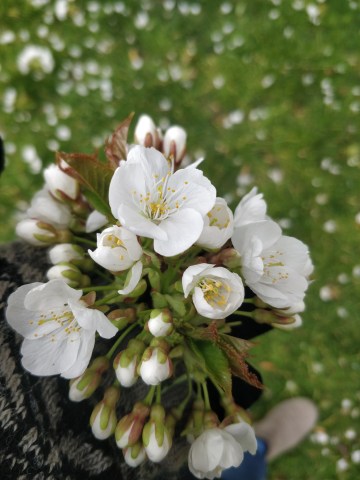Language Learning

So I’ve been learning Chinese. (你好! 如果你读我的汉字, 告诉我!) And, to my surprise, I’ve been really enjoying it. I’ve also tried to resurrect what tiny bit of French I have, not least after the French translator of Madness of Angels greeted me with the immortal words:
‘So I translated your book, and I really enjoyed it, it was very interesting, very new for me. But this thing you do in English… this I/we thing… in English it is beautiful, but in French it is how we say… uh… f******d.’
And all this got me thinking. I went to a very good school. Well, I’ve a couple of gripes – their insistence that I did English Lit at A-Level (shudder) instead of Drama somewhat gets my back up in retrospect, in the sense that no one even mentioned that RADA existed and there was a thing as technical theatre for me to do, but anyway, like I said, ignoring that particular raised eyebrow towards the careers department, a really excellent school from which I came away feeling reasonably scholarly.
But! I do feel staggeringly let down by my experience of learning languages. And I don’t know if this was the syllabus, the teaching, the school, me, or what, but I came away from my obligatory GCSE in a modern language feeling thoroughly inept. I was bad at languages. This was my firm belief. I hated them, they hated me. I didn’t understand how they worked, and would never excel in any language ever. I dreaded lessons and was consistently, not only in the lowest stream for a language, but the lowest part of the lowest stream, and after call I remember my French teacher would continually take me to one side and say, ‘Well, Catherine, what are we to do with you?’
What she decided had to be done with me, was chastisement. Because I clearly wasn’t going to be good enough and had to try harder.
Nearly a decade later, and I am furious that I walked away from my school education believing that I was pathologically incapable of languages. Don’t get me wrong – I doubt I’ll ever be bi-lingual in anything, not to a proper standard – but I really enjoy learning Mandarin. I love the satisfaction of being able to look at a page and even get 60% of the characters right. I like the sound of French, take huge pride in my ability to say even a little in German, and from that to have a surprisingly good shot at reading bits of Norwegian, hearing bits of Danish, catching a few words of Dutch and beginning to piece together other things.
My school experience didn’t merely leave me feeling like a bit of a failure in this regard, it also undermined my willingness to seize other opportunities. At LSE, us International History students were obliged to take ‘outside options’ in our first two years in subjects which weren’t history, and as someone with a fondness for the early modern, how useful it would have been for me to brush up my French, work on my German, or even try and grab a few phrases of Arabic or traditional Chinese? But no – my dread of languages and the conviction that I was destined to be rubbish at them held me back and instead – how I shudder at the memory – I waded through Sociology (interesting for the first 15 minutes of a lecture, soul-destroying for the rest) and International Relations (basically common sense with obtuse footnoting). Now I wish – just wish I’d taken advantage of the language department, and its extensive, available and willing staff. It’s an opportunity I missed entirely, and hugely regret.
To a degree, maths teaching at school has something similar to answer for. Not nearly so much – I very much liked my maths teacher – but GCSE Maths, like GCSE languages, was a lot of learning by rote. See this equation? Apply this method. See that verb? Derive it thusly. The ‘why’ of it was considered not really necessary to the passing of exams, and so I struggled through GCSE mathematics with about as much initiative as an amoeba. Only at Physics A-Level did the elegance of mathematics begin to come alive, as finally we applied equations to tangible things, saw the ways in which numbers had their own logical sense, and drew our triangles not between imaginary points, but between distant stars as viewed from orbitting planets. Even then, as the only Physics student in the class who wasn’t doing A-Level Maths (believing again, I would be inept at it) I struggled when we started doing circular mechanics, as all the other students had been taught concepts I entirely lacked. To this day I cannot explain why we had to use ‘rads’ when doing wave mechanics, or quite what applying the ‘ln’ function to radioactive decay really achieves, other than an extra 5 marks on the exam paper. Of my Physics teachers, one – the immortal Miss Ingham, praise be upon her – was incredible, grabbing at distant concepts and making them real and whole. As for the others – well, my A-Level Circular Mechanics paper was best summed up by the immortal words, ‘You’re all going to fail!’ which voice haunted me all the way through my indeed, very low-scoring paper. ‘Just press the button!’ shrilled this particular teacher. ‘That’s all that’s required of you!’
How now I lament these words. Not only did I miss out on opportunities, but it has taken me another eight years – eight years! – to overcome even the entrenched fear of daring to find out answers for myself.





